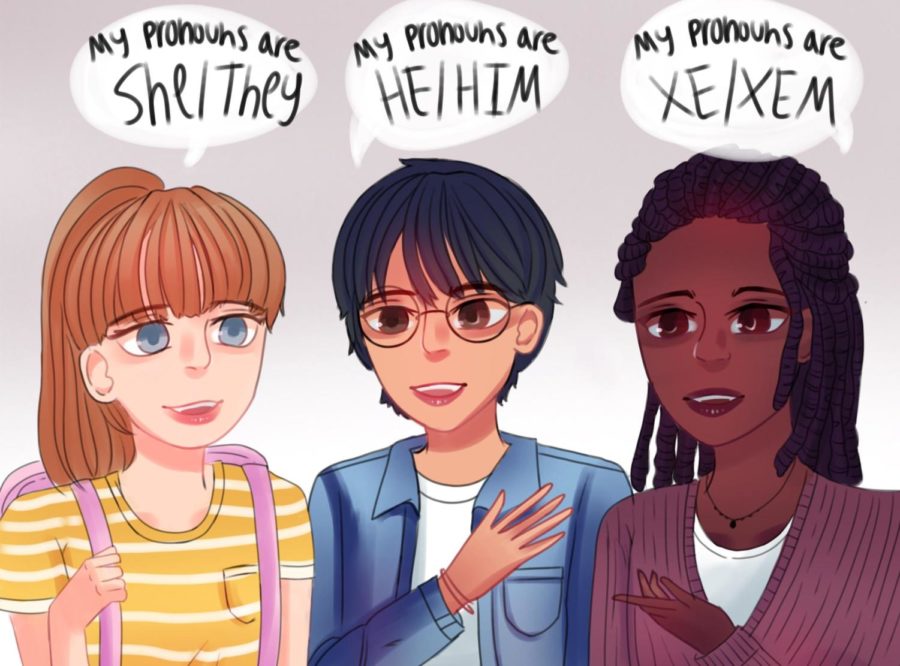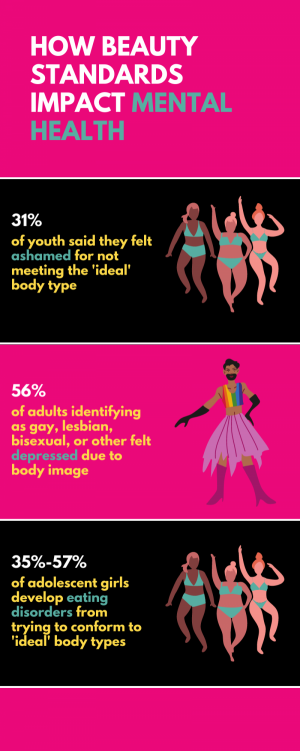Pronouns need to be respected in classrooms
Students use their personal pronouns to identify themselves and be referred to.
November 7, 2021
‘She/her, he/him, they/them and xe/xem’ are only a few of the pronouns that individuals may use to be identified and addressed. The use of correct pronouns applies both in and out of the school environment. However, not all teachers, staff and classmates take students’ preferred pronouns seriously.
According to Medical News Today, pronouns are important because they provide an understanding of one’s self and one’s gender identity, which holds incredible personal meaning. Pronouns aren’t exclusive to the gender identity one uses. A common misconception people have is that a non-binary person has to use the pronouns they/them, which is untrue.
“[Some adults] are not used to the idea that there are people who use pronouns that differ from what’s typically expected of their gender that they were assigned at birth,” freshman Alexandra Smith said. “They tend to be less accepting of that and try to cause issues, such as ‘no, I’m not going to use these pronouns for you because this is what it says on your enrollment list.’”
On an Instagram poll conducted on October 26, 8 out of 34 students showed that 23% had had their pronouns disrespected previously by teachers, staff members or students; in a follow up poll, 30% of students who chose yes had their requests ignored.
When a student’s gender identity is disrespected, their ability to learn is heavily inhibited, which can worsen their mental health and well-being. A 2018 study of transgender youths discovered that when using a person’s chosen name and preferred pronouns, there is a reduction in depression and suicidal behavior, according to the National Library of Medicine. If all faculty and students applied this to their classrooms, the learning environment would be more inclusive and accepting, thus making students feel comfortable to be who they truly are.
“The wrong pronouns make it feel like I’m in the wrong body [or] in the wrong skin,” sophomore Rory Ketzle said. “It just makes me feel uncomfortable and unsafe.”
Students have been trying to find ways to overcome this obstacle by spreading the message of how adults should educate themselves on this issue, to further encourage an already safe community for learning for many students.
“To bring attention to my pronouns, I just tell my teacher, ‘hey, can you refer to me with these pronouns instead of what you’re [currently] using for me’,” Smith said. “When you use the right pronouns for someone, it makes them feel really included and respected. Teachers should know that.”
Teachers are important to society; after all, they are educating the future generations of our country. A truly effective educator always considers their students’ feelings and emotions, and ensures that their students feel like they belong in their classroom. Teachers can do this by respecting each students’ preferred pronouns.
“[Teachers using my correct pronouns] helps me because it lets me know that they’re really trying to respect me and my identity,” Smith said. “[I feel like] they’re looking out for me and not just doing what they think is going to be best for me, but doing what is actually good [for my well-being], rather than going against my wishes.”





